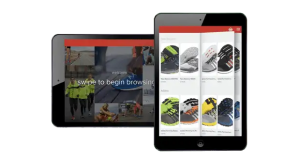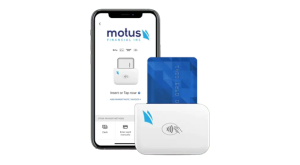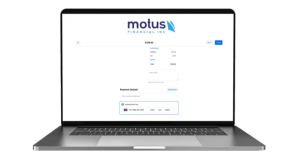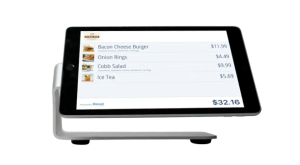How to Choose the Best Healthcare Payment Solution for Your Needs
In today’s fast-evolving healthcare industry, having the right healthcare payment solution is crucial for ensuring smooth transactions, improving patient experience, and maintaining compliance. Whether you operate a hospital, clinic, or private practice, selecting the best payment system is essential for efficiency and financial stability. This guide will help you navigate the process and choose the best solution for your needs.
Understanding Healthcare Payment Solutions
A healthcare payment solution is a system that enables medical providers to accept, process, and manage payments from patients and insurance companies. Specifically, these solutions help simplify transactions while ensuring compliance with industry regulations. Moreover, they enhance security measures and reduce administrative burdens. In addition, they integrate with electronic health records, thus improving efficiency. Consequently, providers experience fewer billing errors, whereas patients benefit from a smoother payment process. Ultimately, these solutions streamline financial operations and improve the billing experience for both providers and patients.
Key Components:
· Billing and invoicing automation
· Insurance claim processing
· Compliance with industry regulations (HIPAA, PCI DSS)
· Integration with Electronic Health Records (EHR)
· Secure online and mobile payment options
Identifying Your Healthcare Payment Needs
Choosing the right healthcare payment solution starts with a clear understanding of your unique operational needs. Whether you are a small private practice or a large hospital network, identifying gaps in your current payment process is essential. Evaluating how your patients prefer to pay, the efficiency of your existing system, and compliance with industry regulations will help you make an informed decision.
Before choosing a healthcare payment solution, assess your specific requirements:
- Type of Healthcare Provider: Hospitals, clinics, and telemedicine services have different needs.
- Transaction Volume: Consider the number of daily and monthly transactions you process.
- Integration Needs: Ensure the solution integrates with your existing software (EHR, accounting).
- Regulatory Compliance: The solution should comply with HIPAA and PCI DSS standards to protect patient data.
Read Also :- How to Choose the Best Healthcare Payment Solution for Your Practice
Key Features to Look For in a Healthcare Payment Solution
When selecting a healthcare payment solution, it’s important to focus on features that enhance security, streamline transactions, and improve the patient experience. A comprehensive payment system should not only process payments efficiently but also integrate seamlessly with your existing healthcare infrastructure. By identifying the most valuable features, healthcare providers can optimize financial operations and reduce administrative burdens.
Finding the best payment system involves evaluating key features that align with your needs. Motus Financial Inc recommends looking for the following:
· Security & Compliance: Data encryption, fraud detection, and HIPAA compliance.
· Automation & Efficiency: AI-powered billing, automated claims processing.
· Payment Flexibility: Accepting credit/debit cards, mobile wallets, and financing options.
· Patient Experience: Easy-to-use portals for bill payments and clear invoices.
· Interoperability: Seamless connectivity with insurance providers and health records.
Evaluating Costs and Return on Investment (ROI)
Investing in a healthcare payment solution requires careful consideration of both the upfront and ongoing costs. While some providers offer a low-cost entry point, hidden fees can accumulate over time, making the solution more expensive in the long run. Understanding the long-term benefits, such as improved cash flow, reduced administrative burden, and enhanced patient satisfaction, is essential to assessing the return on investment. A well-chosen system not only streamlines financial transactions but also minimizes payment delays, leading to more predictable revenue cycles. Additionally, automation and digital payment options can reduce human errors and lower operational costs by decreasing reliance on manual billing processes.
Understanding the cost structure is vital to making an informed decision. Here’s what to consider:
· Subscription Fees vs. Transaction Fees: Some platforms charge monthly fees, while others take a percentage per transaction.
· Hidden Costs: Look for setup fees, processing fees, and maintenance costs.
· Scalability: Can the system grow with your practice?
· ROI Considerations: Faster payment processing reduces administrative burden and improves cash flow.
Read also :- The Ultimate 2025 Guide to Healthcare Payment Solutions
Comparing Healthcare Payment Solution Providers
Selecting the right healthcare payment solution requires evaluating multiple providers to find the best fit for your organization. With various options available, from traditional banking institutions to modern fintech firms, it’s essential to assess their capabilities, security measures, and ease of integration. The right provider should align with your operational needs, compliance requirements, and patient payment preferences.
Choosing between traditional banks and fintech companies is an important step. Some factors to consider:
· Traditional bank solutions may offer reliability but could lack innovation.
· Fintech providers offer advanced features like AI-driven payment tracking and analytics.
· Cloud-based solutions offer flexibility, while on-premises solutions provide more control.
· Look at Choose the Best Credit Card Processing System options that integrate seamlessly with healthcare billing.
Implementation Best Practices
Implementing a healthcare payment solution requires a structured approach so that there is minimal disruption and maximum efficiency. Therefore, proper planning, staff training, and phased deployment are crucial to a successful transition. Moreover, healthcare providers must ensure that their new system integrates seamlessly with existing workflows while also maintaining compliance with regulatory standards. Furthermore, effective communication with both staff and patients can help streamline adoption and reduce resistance to change. Finally, providers should monitor system performance post-implementation to identify and resolve any issues early on.
Transitioning to a new healthcare payment solution requires proper planning:
· Vendor On boarding: Choose a provider with strong customer support.
· Employee Training: Staff should understand how to use the new system efficiently.
· Data Migration Strategy: Ensure smooth transfer of patient billing data.
· Testing & Pilots: Run a test phase before full implementation.
· Consider the question Should My Business Take Credit Cards when evaluating payment options for your practice.
Future Trends in Healthcare Payments
The healthcare industry is evolving, and payment solutions must adapt. AI and machine learning streamline billing and fraud detection, while blockchain enhances security. Real-time payments improve cash flow, and digital wallets offer greater convenience. Staying ahead of these trends boosts efficiency, reduces costs, and strengthens financial health.
· AI & Machine Learning: Automating billing and fraud detection.
· Blockchain Technology: Enhancing payment security and transparency.
· Real-time Payments: Faster reimbursement for providers and immediate payment processing.
Check out our Google My Business Profile for more insights on how to optimize your payment processes.
Healthcare Payment Solution Comparison Table
Selecting the right healthcare payment solution requires careful evaluation so that you choose the best fit for your needs. First and foremost, comparing different options based on reliability, security, cost, and integration capabilities is essential. Moreover, considering scalability as well as ease of use can enhance long-term efficiency. In addition, looking at customer support and compliance ensures smooth operation. Ultimately, below is a comparison table that will help you make an informed decision.
| Feature | Traditional Banks | Fintech Companies | Cloud-Based Solutions | On-Premises Solutions |
| Reliability | High | Moderate | High | High |
| Innovation | Low | High | High | Moderate |
| Integration | Limited | Strong | Strong | Moderate |
| Security | High | High | High | Very High |
| Scalability | Low | High | Very High | Moderate |
| Cost | Moderate | Varies | Varies | High |
Common Questions About Healthcare Payment Solutions
Q1. What is a healthcare payment solution?
Ans. A healthcare payment solution is a system that enables medical providers to process payments from patients and insurance companies more efficiently, while also ensuring compliance and security. Moreover, it helps streamline financial operations and reduce errors.
Q2. Why is compliance important in healthcare payments?
Ans. Compliance with HIPAA and PCI DSS regulations not only ensures patient data security but also reduces the risk of fraud or data breaches. Additionally, it helps build trust with patients and stakeholders.
Q3. What payment methods should a healthcare provider accept?
Ans. A good healthcare payment solution should support credit/debit cards, mobile wallets, online payments, and financing options so that it offers flexibility to patients. Moreover, it should ensure secure transactions while also integrating seamlessly with existing systems.
Q4. How can automation improve healthcare payment processing?
Ans. Automation reduces manual errors, speeds up claims processing, and enhances financial management through AI-powered analytics.
Q5. What are the costs associated with a healthcare payment solution?
Ans. Costs vary based on subscription fees, transaction fees, setup costs, and additional features like data security or integration with EHR systems.
Q6. Can a payment solution integrate with my existing EHR software?
Ans. Yes, most modern healthcare payment solutions offer seamless integration with EHR systems so that billing and patient management remain efficient. Moreover, this integration enhances workflow automation while also reducing administrative burdens.
Q7. How do I choose the best payment provider for my healthcare business?
Ans. Consider factors like security, automation, cost, integration capabilities, and customer support so that you make an informed decision. Moreover, evaluating user experience and scalability can also help ensure long-term success.
Read also :- How to Choose the Right Healthcare Payment Solution for Your Practice
Contact Us
If you are looking for a reliable healthcare payment solution, then Motus Financial Inc is here to help. Moreover, we provide expert guidance tailored to your needs. Therefore, contact us today so that you can choose the right system for your business with confidence.
- Address: 100 Wilburn Road, Suite 209
Sun Prairie, WI 53590
United States - Website: www.motuscc.com
By selecting the right healthcare payment solution, you can not only improve efficiency but also enhance patient satisfaction while ensuring compliance with industry standards. Furthermore, such a system consequently reduces administrative burdens and minimizes errors. In addition, it helps optimize cash flow and simplifies payment processing. Therefore, take the next step in streamlining your healthcare payments today!
Final Thought
Selecting the right healthcare payment solution is a crucial decision that significantly impacts your practice’s efficiency, patient satisfaction, and financial health. Therefore, by considering factors like security, automation, cost, and integration, you can ultimately find a system that meets your needs. Moreover, stay ahead by adopting future-ready solutions that not only offer seamless, secure, and efficient payment processing but also enhance overall workflow. Additionally, these solutions can help reduce errors and improve cash flow. Thus, take the next step in streamlining your healthcare payments today!








 Our POS systems are designed to streamline in-store transactions. With features like inventory management, sales reporting, and customer tracking, our POS solutions help you run your business more efficiently. Our terminals are compatible with various payment methods, including chip cards, contactless payments, and mobile wallets.
Our POS systems are designed to streamline in-store transactions. With features like inventory management, sales reporting, and customer tracking, our POS solutions help you run your business more efficiently. Our terminals are compatible with various payment methods, including chip cards, contactless payments, and mobile wallets.